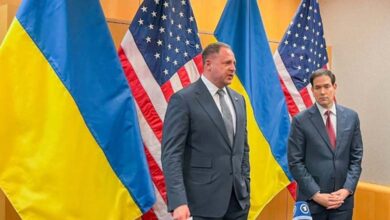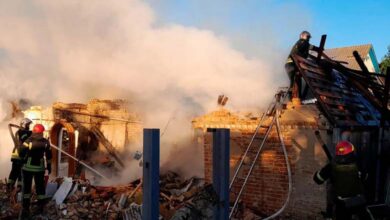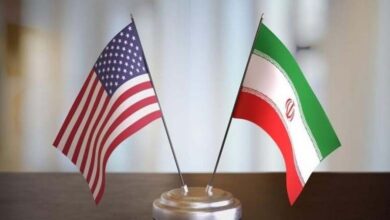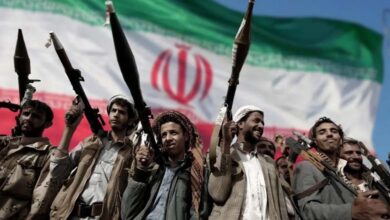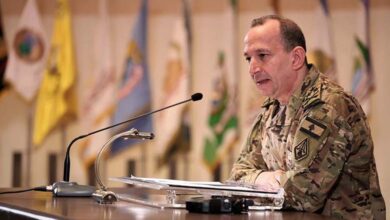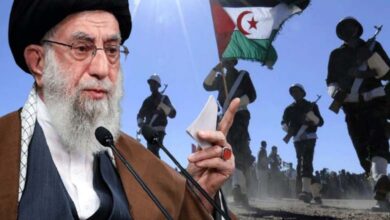Leaked document reveals the extent of the charges leveled against Ghannouchi.. Will the punishment reach the death penalty?

Rached Ghannouchi, the leader of the Tunisian Muslim Brotherhood, is facing a strong indictment in court cases, despite the investigative judge’s decision to release him pending investigation.
On Tuesday, the Tunisian Public Prosecution appealed the court’s decision to keep Ghannouchi free after interrogating him in the case of Namaa Association, in which he is accused of terrorism and money laundering cases. Ghannouchi was held in a ten-hour interrogation session.
Ghannouchi was referred Tuesday to the anti-terrorism investigative judge as a defendant in what has come to be known as the Namaa Association case.
A leaked document on social media, reportedly issued by the Tunisian judiciary, revealed the charges made by investigating judges against Rached Ghannouchi during his trial.
The charges against Ghannouchi include intentionally joining, at any address, within and outside the territory of the Republic, a terrorist organization linked to terrorist crimes and forming an organization connected with terrorist crimes.
The charges also include “using the territory of Tunisia and the territory of a foreign state to assign and train a person and a group of people with the intention of committing a terrorist crime”, as well as “putting competencies and expertise in a terrorist organization, including persons linked to terrorist crimes”.
The judges also charged Ghannouchi with “disclosing, providing and disseminating, by whatever means, direct information to a terrorist organization, and to persons connected with terrorist crimes with the intent of aiding, concealing and benefiting from them, and with the impunity of the perpetrators”.
Not to mention “the direct and indirect donation, collection or provision of funds with the knowledge that their purpose is to finance the commission of terrorist crimes, or their use by persons, organizations or activities connected with terrorist crimes”.
In addition to charges relating to “the donation, collection, provision or provision of funds, knowing that their purpose is to finance the travel of persons outside the territory of the Republic for the purpose of joining a terrorist organization, conciliation or commission of a terrorist crime, or for the purpose of receiving or providing training to commit such crime”.
The charges also include “hiding or facilitating the concealment of the real source of movable or real property funds, income or profits belonging to natural persons, knowing that their purpose is to finance persons, organizations or activities related to terrorist crimes”.
Document validity
A Tunisian judicial source confirmed the authenticity of the document circulated via the media, indicating that Ghannouchi’s file is accompanied by serious and irrefutable evidence, which made the hearing and presentation last more than ten hours, the longest period of investigation that took place against a Tunisian politician since 2011.
It said the public prosecution had demanded a detention order for Ghannouchi. The charges could carry the death penalty.
Ennahdha secret service
Tunisian political activist Hassan al-Tamimi said, “Ghannouchi and his gang have ended politically and popularly, and all that remains is to hold them accountable for the crimes they committed against the country.”
He said that Ghannouchi’s involvement “is part of the secret service file of the Ennahdha Brotherhood movement.”
“Ghannouchi is being prosecuted on charges of terrorism and money laundering, and he must be held accountable for all his crimes, especially after he wreaked havoc and crime in the country,” he said. “He and his group believed he was outside the rule of law, and he tried very hard to reach the position of speaker of parliament to obtain immunity in order to get away with it.”
Tunisian authorities began investigating the case, following a complaint filed by the defense committee for the two leaders, Chokri Belaid and Mohamed Brahmi, who were assassinated in 2013, accusing a charity of receiving funds of unknown origin from abroad.
Ridha Al-Radawi, a member of the defense committee for Chokri Belaid and Mohamed Brahmi, said that the association was established in 2011 under the name “Namaa Tunisia” and aimed at encouraging foreign investments. It was involved in the crimes of travel (sending young Tunisians to fight in conflict and war zones). Preliminary investigations were opened, which were soon pursued by the Ennahdha Movement through its arm in the judiciary.
Al-Radawi said the association used “encouraging investment” as a cover, while “its internal role was to manage the issue of young people traveling to terrorist sites in exchange for money that would be transferred to its bank accounts”.
Under the 2015 Terrorism Law, Tunisia mainly sentences convicts to death in national security trials, although this punishment has been suspended since 1991.




